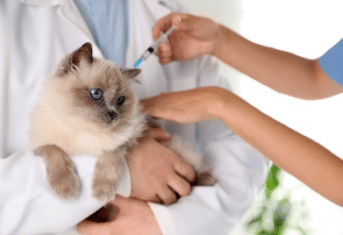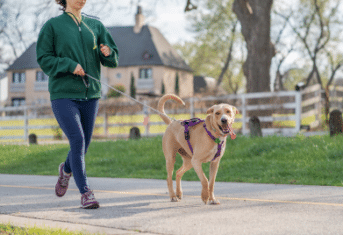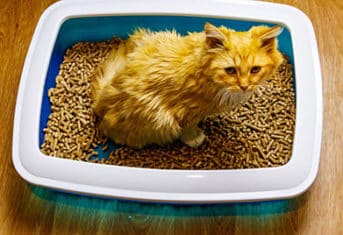What is “essential” veterinary care?

What is “essential” veterinary care?
New York State Governor Andrew Cuomo has instituted mandatory social distancing to prevent the spread of COVID-19. Officially, New York State is on PAUSE. Nonessential workers are working from home and essential workers must decrease workforce and maintain social distancing. Veterinary hospitals are considered essential businesses, but not all functions of a veterinary hospital are essential. In today’s blogpost, I will highlight some of the essential services we are providing at the Animal Medical Center (AMC) while we ensure proper social distancing.
Blood transfusion and penny removal
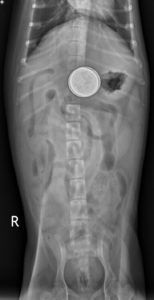
I don’t think anyone would argue a blood transfusion is not essential. A five-month-old Maltese came to AMC because of extreme lethargy and white gums. A quick assessment by our Emergency Room staff found her red blood cells to be very low, at 15%. (Normal red blood cells are around 40%.) A common risk with young dogs is their indiscriminate eating, and this pup’s x-rays revealed coins in her stomach.
Despite the fact that pennies are copper colored, they are actually made of zinc. Zinc mixed with stomach acid destroys dog red blood cells, and zinc toxicity was the cause of her anemia. A blood transfusion corrected her anemia and allowed her doctors to remove two pennies and a dime from her stomach using an endoscope. She was discharged the following day.
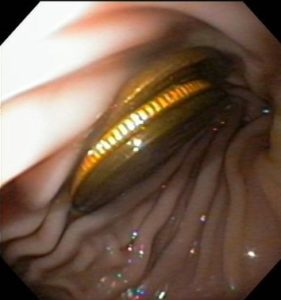
Welcoming new pups
Despite the pandemic, life goes on and nothing will stop the birth of a litter of puppies, unless of course one of them gets stuck. That’s exactly what happened to a cute French bulldog mother-to-be. Puppy number one got stuck in the birth canal and a 3:30 am, and a C-section funded by AMC’s Patient Assistance Fund, was necessary to save the other two puppies. The happy family is now safely back at home.
Are vaccines essential?

In most cases, I can safely delay vaccination until social distancing is eased. The problem occurs with puppies and kittens that are in the middle of their pediatric vaccination series. These vulnerable individuals are at risk for contracting an infectious disease. Take for example the ten-week old puppy recently discharged from our isolation unit after an 8-day hospitalization for parvovirus infection. Puppies and kittens that have not yet received a 16 week of age or older critical vaccine may be unprotected against diseases like distemper and parvovirus. Thus, as a preventive measure, one of my new patients, Bianca came in for her next round of vaccines, which included parvovirus and rabies, because at 14 weeks of age, she too is not yet adequately protected. Preventing an 8-day stay in isolation for a puppy is critical to decrease the use of vital medical supplies needed to manage the pandemic.
Proud to be essential
Veterinarians are proud to be consider “essential” during this pandemic. We have stepped up to the plate by providing urgent and necessary care for animals and by sharing lifesaving equipment such as ventilators with our physician colleagues. As the governor says, “We’re stronger if we all work together.”































